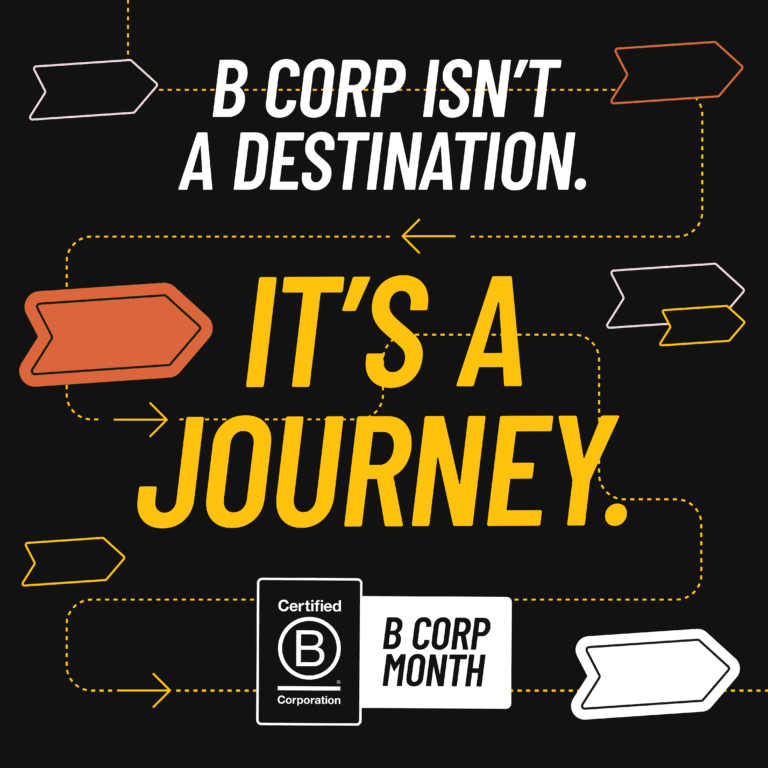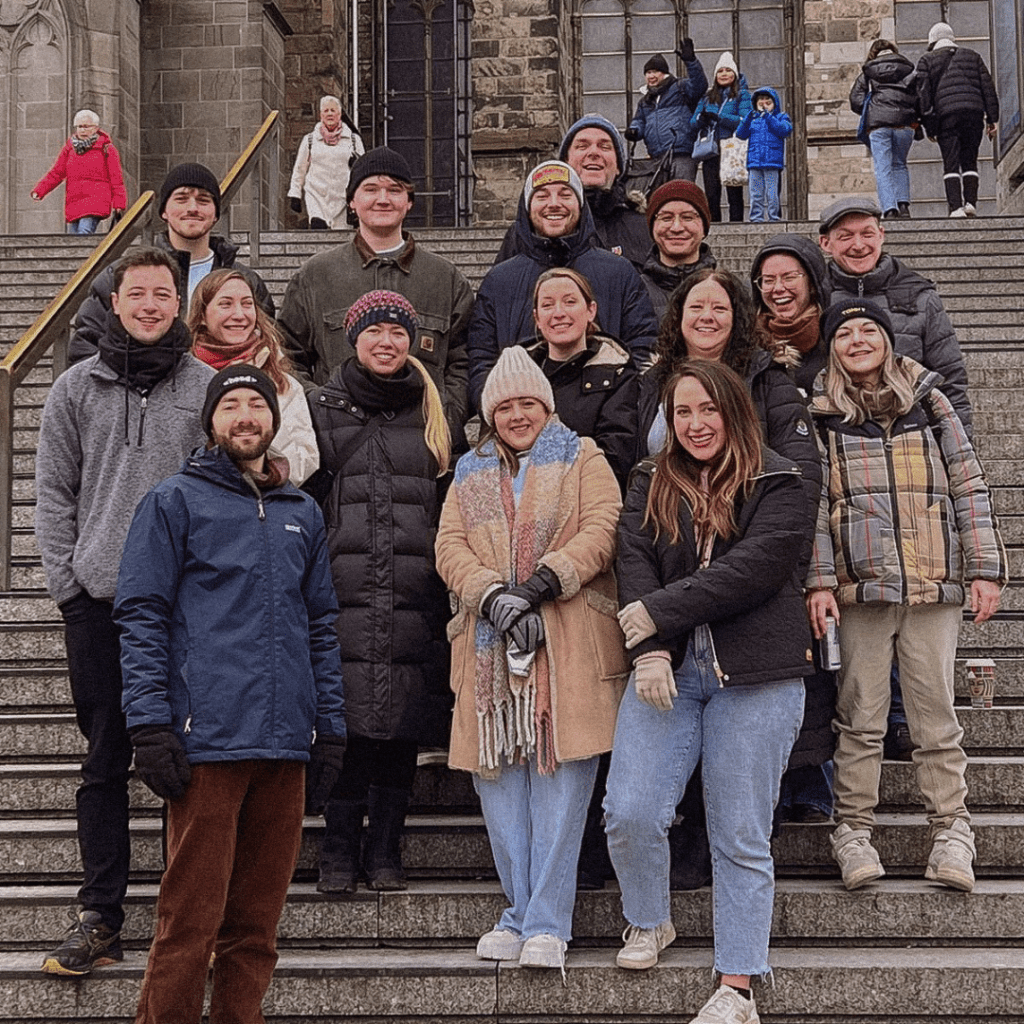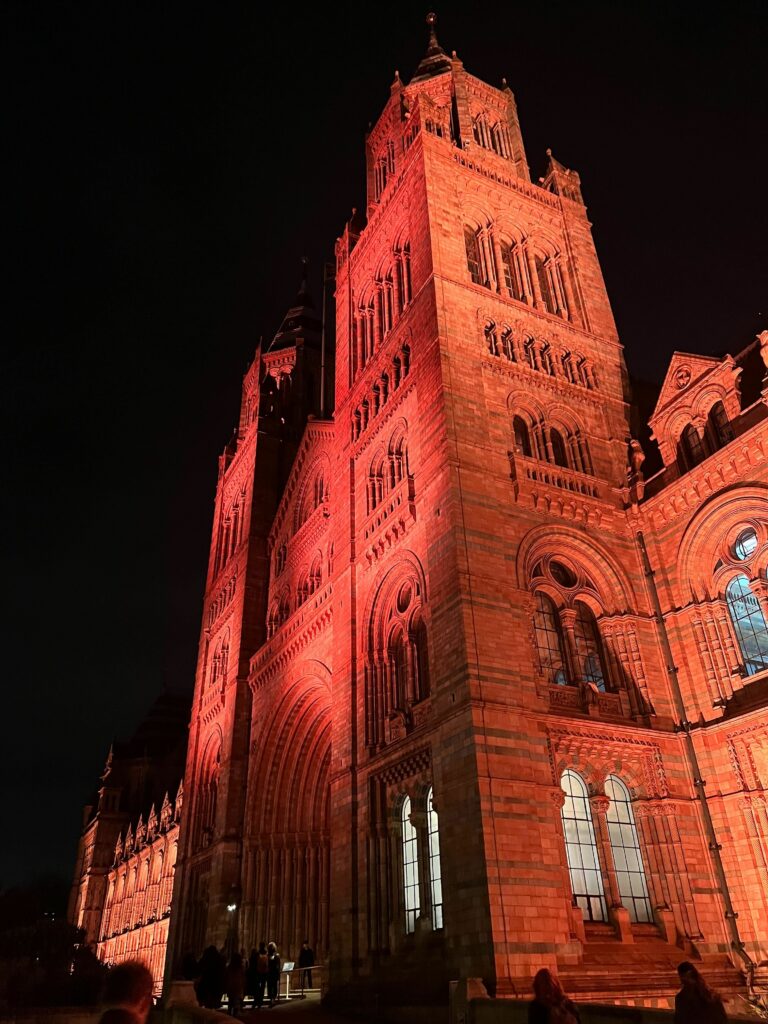Walking the Talk: The B Corp Journey for Climbing Trees


Curious about becoming a certified B Corp? Well, we caught up with our founder, Alex Holliman, to hear about our journey to becoming a B Corp certified business, what that means for us today, and what’s next on the horizon. You can also learn more about the global B Corp network and why we chose to become a part of it here.
What is B Corp certification, and why did Climbing Trees choose to pursue it?

Being B Corp certified means that we are part of a community that is serious about balancing purpose and profit. It is a commitment to using Climbing Trees as a force for good by upholding high standards of social, ethical and environmental impact to truly make a difference in society.
We started the B Corp certification process back in March 2020. And for us, it has brought together a lot of disparate threads that we had within the business. It allowed us to really build out those foundational elements and make something a lot more meaningful, whether it’s looking at things like the environmental performance of the business or our impact on the environment.
We now have a solid framework in place to track our progress and even focus our efforts on having positive impacts in our local community and throughout society.
We have always tried to be transparent, especially within the team, but the framework has given me the confidence to be a little more transparent, see externally, whether it’s talking about what we are doing well or what we are not, and what we need to focus on to try and improve. This is instilled in our values—we are ethical, we are curious, and we are caring. We’ve always cared about our clients, and so our values fit into the B Corp framework and are even enhanced by it.
What changes and benefits has the certification brought to Climbing Trees?
Having gone through the process, we have a solid foundation to build upon, and it’s only getting stronger. We feel a lot more robust and built out. And so we now, for example, measure our environmental impact. We are mitigating that and trying to reduce our scope three emissions. We have no scope one and two emissions.
We have also doubled down on things like the waste from the office and reduced commuting, changing our travel practices to really try and lean into those changes, which will support the business, allowing us to be more conscientious in our environmental stewardship.
With regards to employee satisfaction, our retention is very, very high. We have a net promoter score that is up there with some of the best in the industry, and we are able to attract staff that are technically proficient at what we do as a business. But also, there is that shared view and outlook in terms of actually believing that business can be a force for good in the world in terms of customer relationships.
Following our accreditation in 2022, we have tried to push how we look after our customers, giving them a voice in the business. So we worked with an external consultant called ‘Question and Retain’, who gave our clients a voice in the business. We’ve listened to that and made some changes to really try and give as much impact in the business to our clients.
And then finally, in terms of community engagement, this is the area where we’re probably the weakest and there’s the most work we can do. We try to give back to our local community, and so we are planning on undertaking various initiatives to really make sure that we are contributing to our local area. More of that will be revealed in 2024.
What challenges did you encounter during the initial certification process? Were there any significant lessons learned that shaped your current business practices?
The initial certification period for B Corp was one where we went through everything with care and attention, and it built up a list of actions we had to undertake. So whether that was things like changing our electric supplier, changing our bank account, putting some policies in place, investing in developing an energy management system, or an environmental management system.
It wasn’t just hard work. It was a lot of work, but one that then built out that whole area of the business and then sowed seeds from which, in later years, things started growing.
I had probably gone through the existential fear of, Can I get five days of work? Can I set up a business? Can I employ stuff? And so my immediate concerns about business were more existential than thinking about things like Justice X, diversity and inclusion, or sustainability in hindsight.
And so to then fold that into my thinking and start making some better, more thought out decisions that aligned with my personal values and the business values, it really, really helped.
What about the measurable impacts of being a B Corp? On things like business carbon footprint and diversity in the workplace.
So in terms of the impacts of B Corp, there are quite a few that we can list. Since we’ve become B Corp and started on this road, we have reduced our carbon emissions from 5.3 tonnes per person per year to 3.69 tonnes per person per year.
In regards to team diversity, this is one of the areas where I feel we’ve received the most benefit. We now have diversity ambitions set within the business. We have changed our recruitment policy, we’ve changed the language, we use a blind recruitment process, and we are seeing a massive benefit from that. And we have no gender pay gap at any level in the business.
So from 2022 to 2023, our team grew. We went from having three women and seven men at the start of 22 to having eight women and eleven men by the end of 23. We now have more parents on board, as well as an ethnically diverse team. Our senior leadership is made up of me, plus two women and two men, and we have ambitions to try and make sure that we are an ever improving, welcoming company.
In terms of other measurable impacts, our revenue increased by 38% from 2021 to 2022; we have yet to receive 2023 data. All of our team members have received training in the last year. We have planted over 250,000 trees and supported over ten charities.
Can you describe how your employees have been involved in and influenced by the B Corp ethos?
Since we’ve become a B Corp, we have doubled down on really trying to make Climbing Trees a place where people can turn up, bring themselves and do some of the best and most meaningful work of their career. We are not quite there yet, and it’s still work in progress. However, we’re committed to ensuring that those aspirations come true: to foster a culture in which people who share our values can be their best selves.
We now have a women’s committee, which meets on a regular basis without any set agenda from me or any other senior team. They set the agenda themselves, and from that process, there are things that have come to fruition, such as recharge days, where team members who are struggling with overwork, burnout, period or menopause problems can take paid leave on the day. We now have a recharge policy in place from that committee. Similarly, we are looking at extending maternity and paternity cover throughout the business.
We have basic healthcare in place. We have an emergency loan facility in place, and so we’ve really tried to make sure that what we do in the business is as thoughtful as possible so that people do feel valued within the company.
We’ve also carried out team training using platforms like giki.earth so we can measure our personal carbon footprint and try making small changes to our daily routines, like reducing energy use or recycling more effectively. Everyone on the team also has the opportunity to volunteer for charities that are important to them.
Workwise, we’ve tried to make Climbing Trees a place where people can work flexibly and set their own boundaries. We don’t always achieve that because sometimes we are in the middle between our clients in the real world, so we get compressed as team members. But we’re trying to really think about how we manage our workflows and put systems and processes in place to make sure that our team does not have to overwork.

Can you share examples or feedback from customers and community members about how your B Corp status has influenced their relationship with Climbing Trees?
Inspired by the client customer section in the B impact assessment after our certification in 2022, for the first time, on March 23, we did a detailed, in-depth survey of every single client we have in the business. We wanted to give them a voice so we could actually understand how they truly felt about our service, how they felt about our staff, and to give them direct communication with us about how things are going.
I’m happy to share that we ended up with a net promoter score that was well above the industry average. But we’ve also listened closely to the other feedback from our clients and made changes to our business practices so we can have as much positive impact on their side as possible. For example, we have a work policy requiring account managers to respond to client-related enquiries or questions within 24 hours.
There was also a gap in terms of some of our clients wanting a little more proactivity when coming up with additional ideas, and so on. For this, I think we’ve been walking a fine line between always selling to our clients and perhaps being a little standoffish.
As a result of this feedback, we carried out one of our biggest strategic planning for all of our senior clients in 2023, providing a full, in-depth summary of everything we’ve done, and this is what’s going well, this is what we’ve tried, this is what hasn’t gone well. Then finally, here are some ideas that we can incorporate into our plans in 2024 to try and drive your business forward.
In terms of feedback, I know that as a result of us becoming a B Corp, we’ve probably encouraged many businesses to begin and some have since completed the process.
How often do you have to renew your B Corp certification? And how is Climbing Trees preparing for recertification?
With B Corp, you have to recertify every three years. So in June 2025, we will have to recertify. In preparation for that, we’ve been through the B impact assessment across the five key areas, which are staff, society, clients, governance and environment.
We’ve been through those with a forensic fine tooth comb, and what we’ve then done is thought about the areas that we can focus on. So it’s things like how we work, ensuring our risk assessments are up-to-date, making sure that with the shift to working from home, we’ve got a risk assessment and the policy in place, or making sure we’ve got a wellness programme in place for the team.
We’re trying to move towards more open book management for financial transparency within the business for the team, and then thinking about things like a sabbatical policy. We’re also surveying our suppliers, making sure that we are supporting female or minority-led businesses, local businesses and those that are taking action environmentally as well.
I think the approach we are taking is that we’ve got a team of myself, our finance manager, a manager and an office manager, and we are leading in trying to pull everything together so that we’re ahead of the game when it comes to our next recertification in 2025.
What does the future look like for Climbing Trees as a B Corp?
Looking ahead, we want to be a responsible business that the world of tomorrow needs. So one that is profitable, looking after its staff, caring for their wellbeing, paying them fairly, and retaining and nurturing talent. We want to be the kind of business that gives back to our local community and isn’t just taking from them.
At the moment, we are thinking about our client base and how we can attract the kind of clients the world of tomorrow needs. In terms of governance, we’re moving towards a more open book style of governance, trying to be as fair and even handed so that anyone looking at the business can get a real sense of how authentically we’re trying to move. And then for the Environment Society, I think that might be a four. We’re also thinking about things like how we transition to buying land so that we can then rewind it and potentially give some over to regenerative farmers, and those conversations are active.
How can businesses get involved with B Corp?
If reading this has got you intrigued by what B Corp has to offer, then the best thing to do is to look at the B Corp impact assessment here, so that you can go through your own business and come up with your own evaluation and then look at ideas that inspire you. Even for things that you’d like to do or that are aligned with your core values within your organisation.
Interested in learning more about B Corp?
Or just having a chat about it? Click here to schedule a call with Alex.

